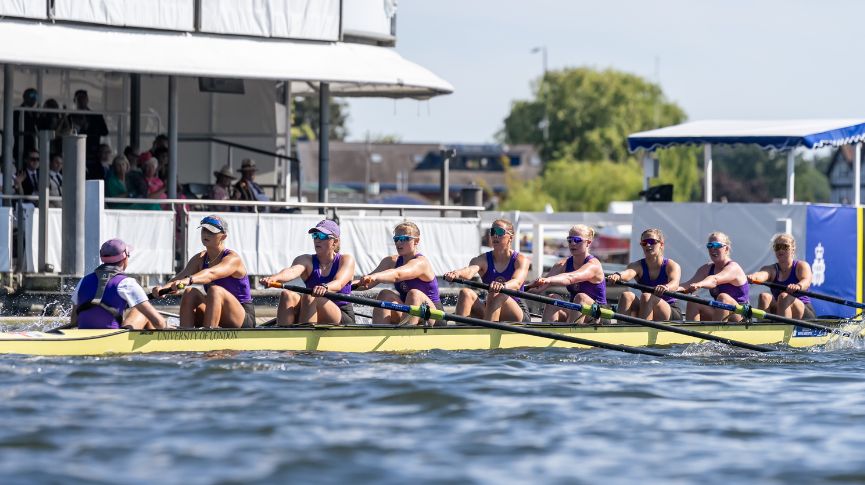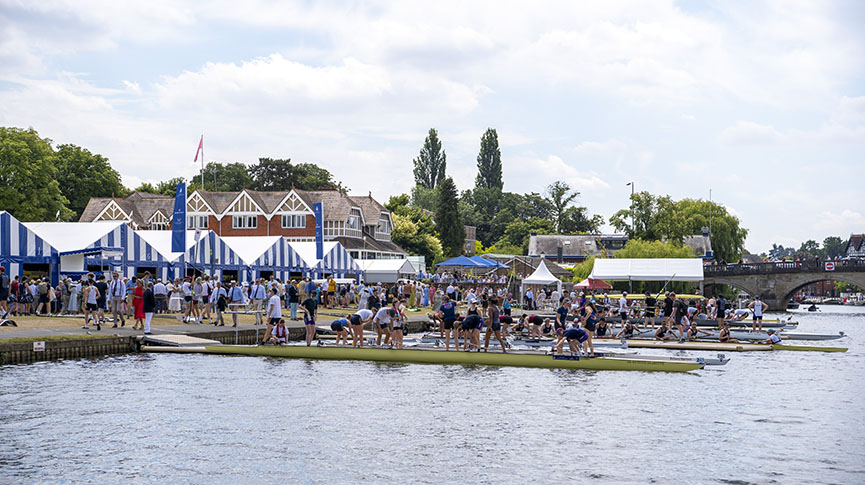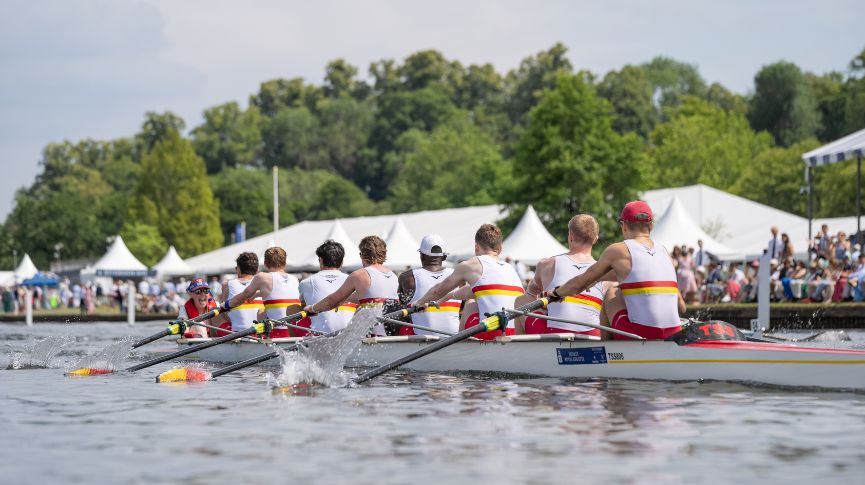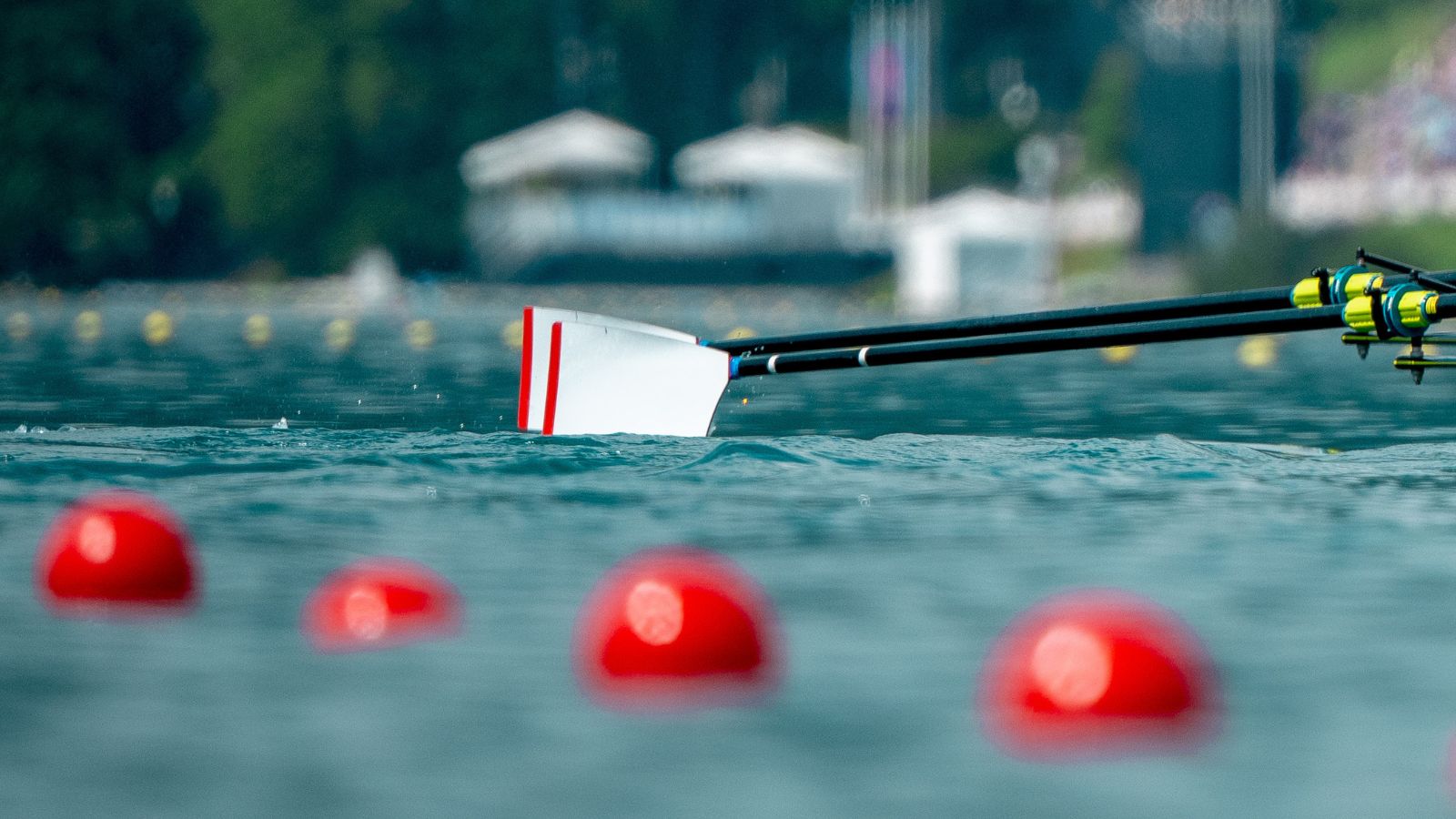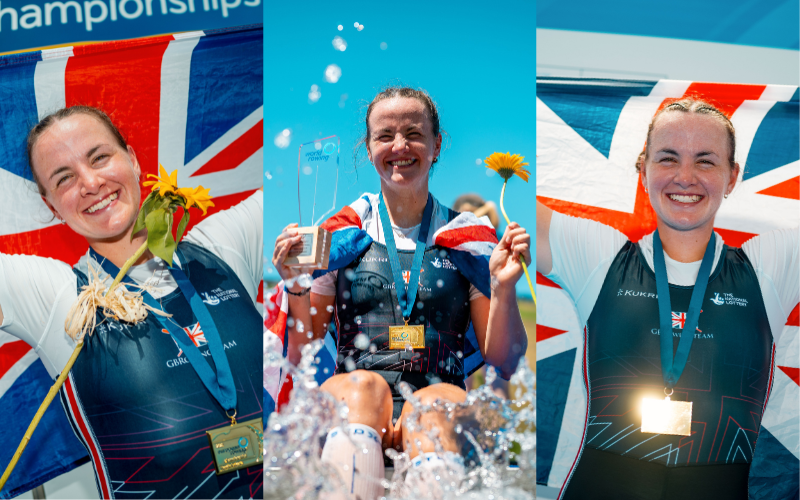How elite rowers use data to achieve Olympic success
Mohamed Sbihi and Zoe Lee explain their love of data as they strive to recreate their Rio 2016 success over the next four years
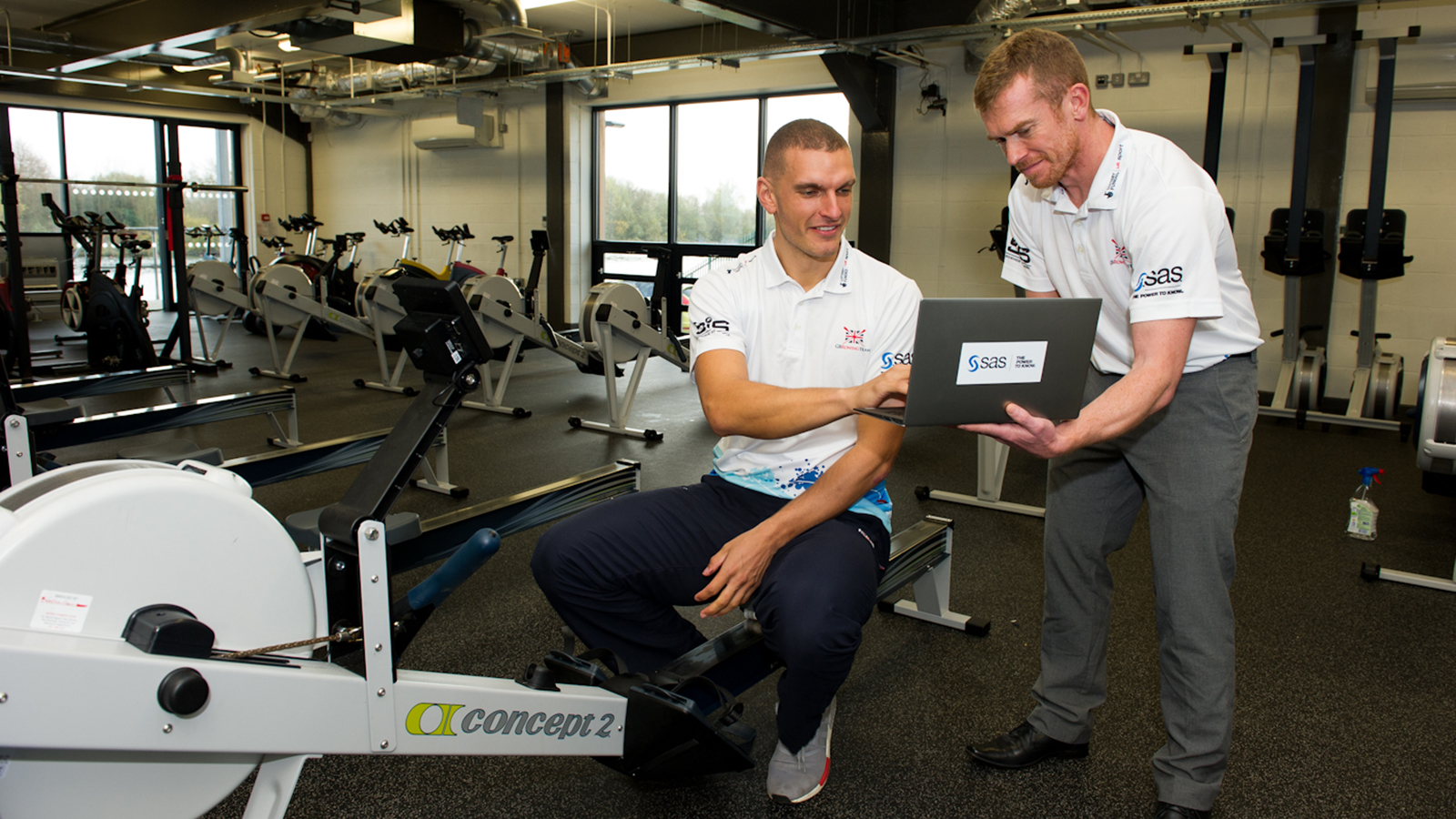
Mohamed Sbihi and sport scientist Mark Homer (Photo: SAS/Victoria Middleton)
In rowing, data is king. British Rowing’s partnership with analytics experts SAS is designed to give our high performance rowers a distinct advantage over the competition.
All athletes differ in their reliance on data – some pore over the numbers after each session to identify areas of improvement, while others prefer to know just their vital statistics.
Together with Senior Sport Scientist Mark Homer, the athletes and coaches work hard to analyse and dissect the data collected at each session – with comprehensive records dating back to 2001.
Olympic champion Moe Sbihi is a self-confessed data junky and used historical analysis to great effect by beating Sir Matthew Pinsent’s 11-year-old British 2km record at the Indoor Championships in 2015.
“I’m always asking questions about my own data and historical data from some of the leading athletes in the past,” Sbihi said. “There is that data there from [Matt] Pinsent and Hodgey [Andrew Triggs Hodge] so there are numbers that I can go back and look at.
“When you’re trying to do something that’s quite challenging you want to look at the numbers of someone who’s done it before. Hodgey’s done some really big scores and I like to be able to see how I compare – knowing that he’s done it, means that it’s possible for me to do. It’s about using the data for my own benefit.”
With the variable weather conditions experienced at the team’s base in Caversham, Homer explains that the majority of the data used is collected during the team’s indoor sessions to ensure a level playing field for all athletes.
“A lot of the data we collect is from the rowing machine – that’s our fixed test bed and we can compare each athlete quite easily. GB started employing sports scientists in 2001, so that’s when I like to think records began,” Homer said.
“We’ve got all the records of Cracknell, Pinsent, all those guys and that helped Moe to look at when the British 2km record was broken and how did Matthew Pinsent do that.”
Despite the variable conditions on the water, weather data itself can also be analysed. This was explored during the Olympic Games in Rio, as the boat set-up can sometimes be adjusted according to the prevailing weather conditions. In fact, lots of data beyond performance data is recorded and analysed, for example physiological data and biomechanical data can also be stored.
With a PhD in geography, Olympic silver medallist in the women’s eight Zoe Lee claims to have even more data stored away than British Rowing’s national team. But when she’s in training in Caversham, Lee likes the ability to analyse and compare her historical data to her current form.
“I love data – I’m a big numbers person. I like to look at my scores and I’m able to track where I am now compared to at the start of the Rio Olympiad. It makes it all feel more comfortable because you’re not going into the unknown,” she said.
“I’m looking at data that tells me how my technique is evolving, how my physiology is changing and data about the cohesion between my teammates.”


